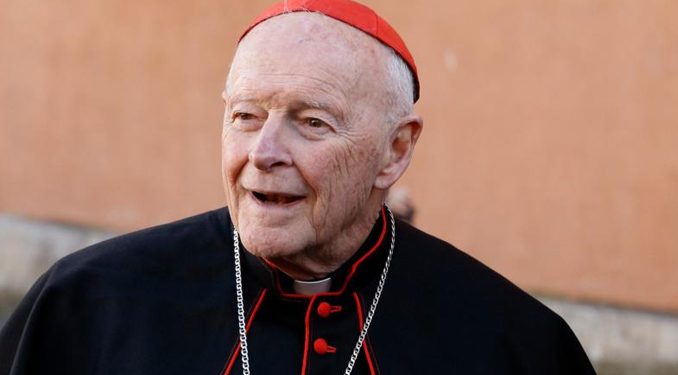Cardinal Mccarrick and the Crisis of Episcopal Leadership
By Christopher R. Altieri
Over the past sixteen years, there has been much praise of the reform efforts the Church’s hierarchical leaders in the United States have undertaken in the wake of the clerical sexual abuse scandal that erupted in 2002. Much of that praise has come from the bishops, themselves. From the very start, however, there has been ample reason to take a grim view of the thing, and I confess I have never been too terribly sanguine regarding the prospects for successful reform. When I have heard it said that the US bishops have made the part of the Catholic Church in their charge the safest place in the world for children, I have inwardly – sometimes privately, but never before now publicly – quipped, “Someone needs to tell them that’s not a selling point.” At best, it’s only a little better than saying: The Catholic Church – Now abusing fewer children. We have heard little about those successes over the past few weeks, especially since several major sees have been caught up in another abuse scandal – this one dating back more than four decades and involving a man, who in the years intervening became a prominent figure in the US Church: the Archbishop-emeritus of Washington, DC, Cardinal Theodore Edgar McCarrick. Cardinal McCarrick is accused of abusing a minor this time – hence Church authorities have taken action – though his reputation for license with priests and seminarians, many of whom were his subordinates, has been the stuff of black legend for decades. Coverage of the story since it broke in the second half of June has made clear the extent to which Cardinal McCarrick’s alleged behavior toward young men over whom he exercised spiritual and administrative authority was an open secret. His alleged proclivities were widely known, and where they were not, they were much guessed at, and fairly. Until very recently, however, it seems no witness had ever brought “credible and substantiated” accusations of McCarrick’s engagement in the kind of abusive behavior that would put the accused afoul of “the charter” – that’s the US bishops’ Rome-approved Charter for the Protection of Children and Young People, first adopted in 2002 and revised in 2005, 2011, and 2018 – which requires Church leadership to take action in such cases. The statement from Cardinal Timothy Dolan of New York regarding Cardinal McCarrick says, “[This is] the first such report of a violation of the Charter for the Protection of Children and Young People ever made against [McCarrick] of which the archdiocese was aware.” Perhaps. The Diocese of Metuchen and the Archdiocese of Newark, however, knew of Cardinal McCarrick’s behavior toward legal adults, for they had settled complaints against him. The shock and sadness expressed over the allegations Cardinal McCarrick violated the Charter are therefore no more than a red herring. The bishops’ vaunted Charter, which is supposed to be at once a shield for the protection of children and young people and an instrument of reform for the Church in the United States, is instead a tool the bishops use to protect themselves and the cultural status quo: so long as a cleric – high or low – does not fall afoul of it, the bishops can turn a blind eye to his behavior. Anyone on the Church beat will have heard dozens of stories through the years, of clerics high and low behaving badly – on the parish dime in one heartbreaking case. As Charles Collins wrote in his excellent analysis piece on the McCarrick scandal for Crux this week, “If the Church hierarchy continues to turn a blind eye to sexual misconduct involving adults, it will never be able to put an end to the sexual abuse of minors.” Meanwhile, the bishops’ moral authority is destroyed and their credibility is in tatters – and there is no quick and easy mending of it. The crisis of clerical sexual abuse is a crisis of clerical culture, and more specifically, a crisis of episcopal leadership: the bishops have lost their way, and they have brought the whole Church with them into a quagmire. The only way out is through, and the only way through the filthy muck and slime of half-truth more devilish than outright mendacity, is veracity. The bishops – all of them and every one of them – must tell the whole, unvarnished truth. In any case, the truth will out.
|
.
Any original material on these pages is copyright © BishopAccountability.org 2004. Reproduce freely with attribution.
